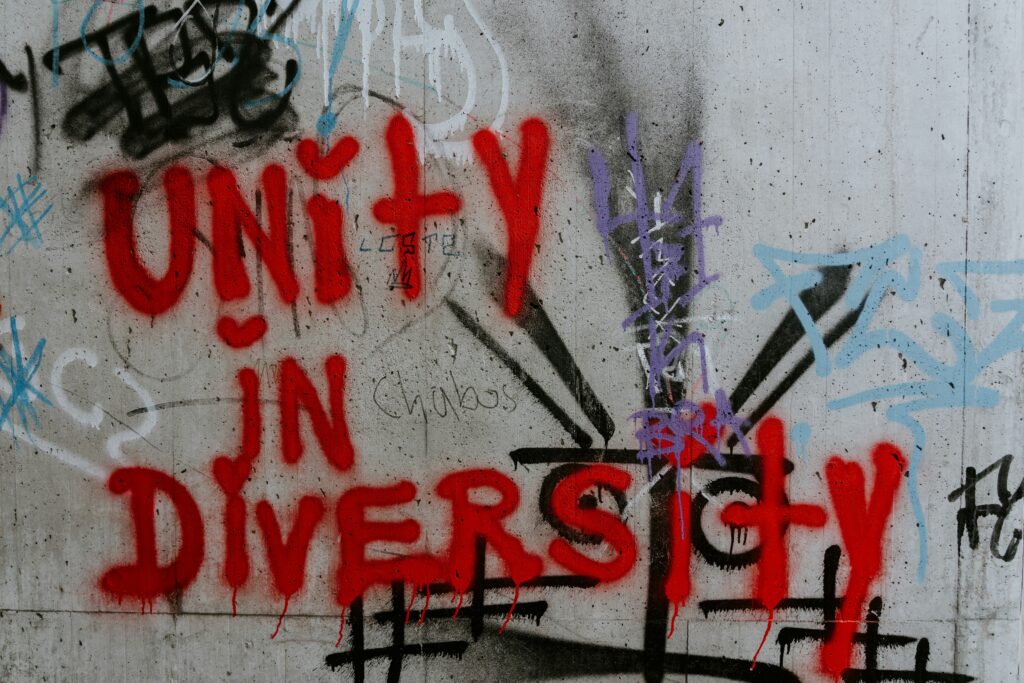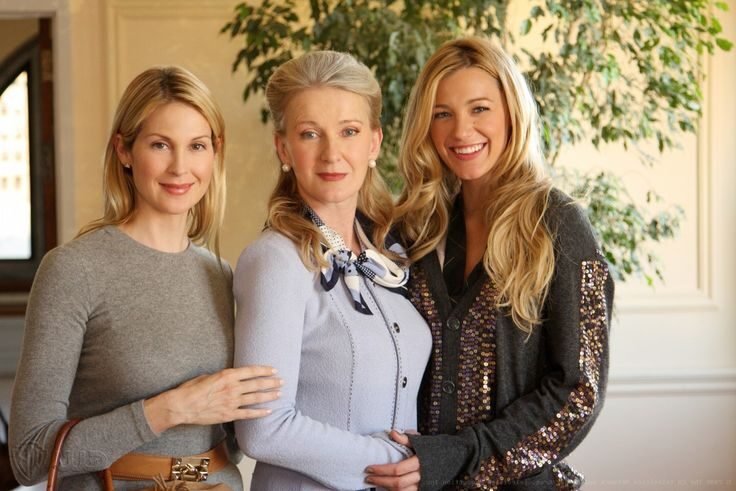There was a moment this week in which I was violently thrust back into the chaotic uncertainty of the teenage years, as my daughter and I sat surrounded by piles of information and two laptops intent on picking her junior year classes for high school.
In theory, my daughter has the privilege of two experts at her fingertips. Her father and I both work in education. We both have advanced degrees. We understand the system and what it takes to be successful in high school and get into college. This should not have been the torment it was.
If you are not currently parenting teenagers who are thinking about life after 12th grade, let me paint a picture of what these young people are grappling with. They have been told their entire lives that the sole point of school is to get a job. They have been pushed by well-meaning parents and counselors into “desirable” courses of study like S.T.E.M. (science, technology, engineering, and mathematics) or C.T.E. (career technical education), no matter if they have aptitude in these fields or not. They are terrified of picking the wrong college or major and getting burdened with debt. They don’t know if they can afford to get married or have kids, much less live on their own in an apartment. The anxiety is real and it’s debilitating.
Even if they have an idea of what they want to do with their lives, making the right decision is not easy. At my daughter’s high school every student needs at least 80 credits of electives to graduate. There are 21 electives offered—which seems great—until you realize that only four of those are actual academic subjects. The rest are college preparatory courses or things like teacher assistant/office support. My daughter is interested in psychology, but there is only one related course that she’ll be able to take her entire four years. Not great.
But the biggest kick to the gut was when I suggested she take an English class for an elective, only to discover that there aren’t ANY on offer. If a teenager wants to learn about language and literature outside of their required classes, they can either sign up for a special two-year International Baccalaureate program or take Spanish Literature. That’s it. There are 57 separate classes for Career Technical Education pathways at this school, including Aviation and Professional Dance. But if you want to read great works of art? Two options.
Now I realize I am working with a bias here—both of my college degrees are in English. And even back in my day people scoffed at the idea of studying literature. The default statement to learning my educational field was inevitably: “Oh, so you want to be a teacher?” As if there was nothing else you could possibly do with an in-depth study of communication, human nature, and history. I’ve never understood why that is.
Like other “soft” Humanities degrees, English majors have shown a steady decline for years. According to the National Center for Education Statistics, from 2011/12 to 2020/21, the number of English majors dropped by a third in the United States. This is a stark comparison to the number of degrees during the same period in the “Parks, Recreation, Leisure, Fitness and Kinesiology” category which have increased by 3,249%. I guess those weightlifting majors are really bringing in the big bucks.
Well I am 30+ years into my professional life thus far and can safely say that my English degrees have been both completely relevant and useful in my trajectory. All the things I learned from reading plays, poems, essays, and novels have made managing an office, communicating with employees and the community, advocating for students, and handling crisis after crisis firmly within my skillset. So, in the interest of changing at least a few hearts and minds of degree-seeking youngsters I present to you an “Ode to an English Degree” a.k.a the top reasons to major in reading.

Reason 1: You can get a high-paying job.
I’m going straight for the good stuff because we all know that making a living wage—especially in a high-cost area like Southern California—is important. Traditional thinking limits English graduates to the most basic of fields: writer, teacher, translator, editor. But as the English Department website at Stanford University explains it: “Careers no longer follow the linear paths that they have for previous generations. The area of study you pursue in college provides you with a broad range of opportunities after graduation rather than training for one specific career path. The skills you have developed as an English major—including technical analysis and interpretation, critical and creative writing, and historical synthesis—prepare you for a range of possible careers.”
Here is a list of career paths from successful Stanford English alumni:
- Strategic Partnerships Manager
- Assistant United States Attorney
- Vice President of Business Development
- Radiologist
- Content Strategist and UX Writer
- Co-Creator, Writer, Director & Producer
- Nonprofit Consultant and Finance Coordinator
Here is a list of famous people who majored in English:
- Television host Conan O’Brien was a double history and English major at Harvard University.
- Angelo Bartlett Giamatti, former president of Yale University and seventh Commissioner of Major League Baseball, received his English degree from Yale.
- Astronaut Sally Ride, received a Bachelor of Arts in English and Physics from Stanford.
- Former Xerox CEO Anne Mulcahy was an English and journalism major at Marymount College.
- Award-winning film director Steven Spielberg was an English major at California State University, Long Beach.
- Barbara Walters was an English Major at Sarah Lawrence College.
- Former Supreme Court justice Thurgood Marshall was a major in American Literature and Philosophy at Lincoln University.
- Singer Sting was an English major at Northern Counties College of Education.
- Former Treasury Secretary Hank Paulson was an English major at Dartmouth College.
Or check out this list of “$100K Careers That Can Start With an English Major” which includes management positions in marketing, human resources, development, and regulatory affairs.

Reason 2: You will be more culturally competent than most of your peers.
As an educational professional, much of my world revolves around issues and concerns related to DEIA (Diversity Equity Inclusion and Accessibility). Especially in California—where no single race or ethnic group constitutes a majority of the population and 52% of those under the age of 24 are Latino—there is both a moral and pragmatic obligation to understand the reality of and advocate for underprivileged individuals. But far from being superfluous to this cause, I feel like my training in literature is key in this endeavor.
Human beings create stories to understand and explain their worlds. When we read the prose of people who have lived different lives in different circumstances than us, we get a glimpse of their souls and a sense of their experiences. The act of relating to someone’s art creates empathy and facilitates a deep understanding of the commonality of human nature.
And while it is true that many of the “great” novels of the past have a very specific Eurocentric viewpoint, I am happy to say that today’s professors teach way outside of Harold Bloom’s “Western Canon.”
In this article from The New Yorker entitled “The End of the English Major” Harvard junior professor Tara K. Menon had this to say about students rebelling against the unenlightened past: “There’s a real misunderstanding that you can come in and say, ‘I want to read post-colonial texts—that’s the thing I want to study—and I have no interest in studying the work of dead white men.’ My answer, in the big first lecture that I give, is, if you want to understand Arundhati Roy, or Salman Rushdie, or Zadie Smith, you have to read Dickens. Because one of the tragedies of the British Empire is that all those writers read all those books.”
Through in-depth reading, vigorous class discussion, and profound personal reflection, English students are exposed to countless cultural viewpoints and linguistic traditions. English majors emerge from their studies with the ability to connect with multiple audiences, sensitivity to the power of language and how it’s connected to meaning, and an awareness of how different social and cultural contexts affect perception.

Reason 3: Artificial Intelligence can’t replace you.
I was delighted when I saw this recent Fortune Magazine article that advises people who want a future tech job to learn language and creative thinking skills.
Matt Candy, global managing partner in generative Artificial Intelligence (AI) at IBM Consulting, believes the jobs of the future will be filled by those who can work with AI using language and creative thinking nurtured in liberal arts degrees. “Rather than us having to learn to talk the language of technology and programming computers, effectively they’re learning to talk our language,” Candy told Fortune. Candy explained there is now a democratization of skills taking place in the tech world, lessening the importance of technical workers and increasing demand for right-brainers.
This makes sense since computers don’t think, they only process. Artificial intelligence combines data with algorithms to make predict patterns. It’s not concerned with humanistic principles like truth, fairness, or understanding. No matter how intelligent the computers get they can never replace the emotional intelligence that is central to understanding the human experience.
Turns out it is this piece—the “soft skills”—that employers need for the jobs of the future. Dr. Lynda Shaw, a business psychologist involved in a workplace personality study by Slack and polling company YouGov, suggested that “workers with a higher emotional intelligence were more likely to become the CEO’s of tomorrow’s AI-focused business landscape.”
The other big piece that AI misses the mark on is the thing that English majors do best: context. One of the special skills that close reading promotes is putting one thing in context to another, usually through linking cultures codes or complex emotions.
This article in Harvard Business Review states that:
Because of the subjective nature of emotions, emotional AI is especially prone to bias. For example, one study found that emotional analysis technology assigns more negative emotions to people of certain ethnicities than to others. Consider the ramifications in the workplace, where an algorithm consistently identifying an individual as exhibiting negative emotions might affect career progression.
AI is often also not sophisticated enough to understand cultural differences in expressing and reading emotions, making it harder to draw accurate conclusions. For instance, a smile might mean one thing in Germany and another in Japan. Confusing these meanings can lead businesses to make wrong decisions.
In other words, Artificial Intelligence doesn’t grasp the nuances that someone who is trained in annotating poetry will.

Reason 4: You will get your way more often.
Follow my thinking on this one: English majors are forced to write a lot of essays. Most of the time, those essays are built around a thesis statement or a point of view that you’re encouraging your reader to agree with. As such, we get a substantial amount of training in the art of persuasion. Our goal is to critically think about an issue, decide what’s most important to us as the author, present evidence in support of our ideas, and ultimately convince others of our assertion.
This way of organizing our thinking is fabulously applicable in the real world. I’ve been in plenty of business meetings where my ability to distill pertinent information down to actionable essentials nets me the result I’m looking for.
English majors also know the power of words and it has always been true that good communication is the key to influencing, no matter what the medium. Advertising and marketing are based on the premise that words can change behavior. Just look at all those TikTok influencers that get you to spend money. We don’t know those people at all, but somehow their words get us to buy, buy, buy.
In the wise words of Don Draper in Mad Men, “People want to be told what to do so badly that they’ll listen to anyone.” (Fun fact: Actor Jon Hamm majored in English at the University of Missouri.)

Reason 5: You get to indulge your imagination.
One of the cruel facts of becoming a grown-up is that there are fewer and fewer opportunities for us to indulge our imagination. As the responsibilities pile up, the hours that we can while away in play or pretend dwindle significantly. Sure, as a country we still spend a lot of time watching T.V. and movies, but reading is one of the best ways to foster imagination, no matter the age.
Don’t believe me? Albert Einstein, one of the preeminent thinkers of the past century had this to say in a 1929 Saturday Evening Post article: “I am enough of the artist to draw freely upon my imagination. Imagination is more important than knowledge. Knowledge is limited. Imagination encircles the world.”
I thought it interesting that during the COVID-19 pandemic book sales went through the roof. As bookstores closed during quarantine, the number of online book sales and e-books hit ten-year highs across the United States and United Kingdom. Suddenly we had the time to imagine a world other than the one we were used to, and books were the magic doorway many of us sought. For me, the phrase “lost in a good book” says it all. Through literature, all dreams are possible.
I haven’t quite convinced my daughter to major in English yet, though I’m still working on it. We talk a lot about the value of an education in our family, and even though Americans are questioning the benefits of college more than ever before, studies show that graduating with a four-year degree is still a good investment. According to the Public Policy Institute of California, “graduates are more likely to participate in the labor force, less likely to be unemployed, and more likely to have full-time jobs. Among full-time workers, college graduates are more likely to have jobs that offer paid vacation, health insurance, retirement, and flexible work arrangements.” The impact of college graduates on lifetime earnings is even greater, with “graduates having more than three times as much wealth as households with less-educated adults.”
As for my daughter, she still has a couple of years to figure out what direction she’s going in. Not surprisingly, I’m rooting for her to major in English, with a minor in Psychology. Let’s see how persuasive I can be.
Main image: Cloris Ying at Unsplash.


